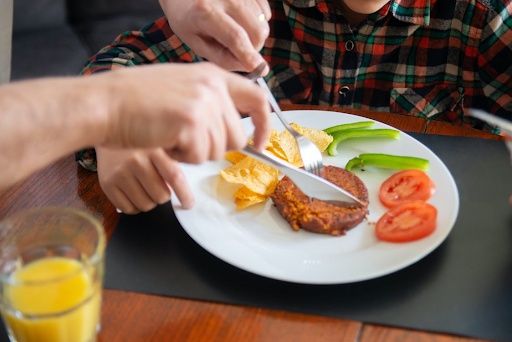A person's way of talking, dressing, and eating says a lot about the culture they grew up in. Many eat with their hands, while others prefer using utensils; some eat meat on special occasions, while others consume it daily.
Table manners reflect the value each culture gives to their food. It is used to make eating together pleasant and introduce healthy habits. Even though no table manners are insignificant, it may seem odd to those outside the culture. Here are four table manners worldwide that make dining together a beautiful experience.
Don't Put Cheese in Your Seafood in Italy
When you enjoy your Frutti di Mare (seafood pasta), do not ask for cheese to sprinkle on top, you will be met with some ridiculously nasty reactions. Why? Because Italians believe seafood and cheese cancel the flavors of each other and do not go well when eaten in combination.
Another table manner is to refrain from asking for extra cheese on your pizza as it shows your distrust in the chef's ability to accentuate flavors. Moreover, you cannot ask for ketchup as it dominates all the other mild flavors of the food. Italians prefer uniformity and balance because each ingredient plays a role in the dish.
Avoid Salt Shakers in Egypt
Salting your food or asking for a salt shaker during a meal can get you skeptical stares and side-eyes from the crowd and the chef. Egyptian culture considers adding salt to your food on the table impolite. The chef prepares every dish with different spices and ingredients to taste unique. But when you add your zest or salt to the meal, you change its flavor, implying that the food was not up to standards.
Keep Your Hands on the Table in Mexico
If you love tacos and salsa, you should also know a little about their dining etiquette. When invited into a Mexican home, do not leave the table too early; turning down a social bonding experience is considered rude. Also, they prefer putting their hands on the table, as a hand hidden under it is a sign of dishonesty. Mexican culture follows all these etiquettes to achieve a sense of fulfillment and togetherness. And to ensure that everyone thoroughly enjoyed the company and the meal.
Dining on the Ground With the Arabs
Did you know that Arabs don't use utensils when eating in their traditional settings? Arabs eat together, but there are specific rules to follow in their dining culture. Instead of setting a table with silverware, they prefer enjoying their meals on the floor. When eating, they remove their shoes before entering the room and always let the family's elders enter the room first and sit ahead of them. They also prefer eating with the right hand and washing it properly before eating.
All these practices show that every culture has one thing in common, it wishes to make dining a pleasant experience. From avoiding salt shakers in Egypt to not asking for ketchup in Italy, we must be kind to whoever cooks for us and respect their culture. Instead of leaving friends and family gatherings, wait for them, talk to them, and make the most of your time. Always take care of your hygiene and make sure to show gratitude for the blessings you have.
If you want the children in your life to learn more about table manners and how they can help you enjoy food, order a copy of Manners Matter by Jill Ciccone Pike—an educational and creative book on good behavior for children.


No comments yet